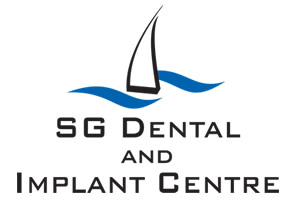Use of the Local Anaesthetic
How a local anaesthetic works to prevent pain and discomfort during a procedure at Mike Allen’s Dental in Burton.
Anyone who has had an invasive dental procedure will almost certainly have received a local anaesthetic; usually administered into the gum through an injection. Although this is not necessarily a pleasant experience for most people, without it, it would not be possible to perform surgery as it would very likely prove to be too painful.
Whilst ‘gas’ was used, in the past, to put people to sleep during a procedure, this is no longer used except in very rare cases, and these have to take place in hospital. The use of a general anaesthetic brings with it risks and also means that the patient is unable to communicate during the procedure which can be important for certain procedures.
How does it work?
The injection given to patients at our Burton on Trent dental practice works by targeting selective nerves and preventing them from sending messages indicating pain to the brain.
The amount given will be determined by the dentist and will depend on the type of procedure about to be undertaken, as well as the invasive nature of it. For example, a minor filling may need just a small amount whereas lengthier invasive procedures such as dental implants will need a larger amount to ensure that patient stays numb for long enough.
Because different patients metabolise the anaesthetic at different speeds, it may be necessary, in some patients, to top up the anaesthetic if a long procedure is involved. The effects of a local anaesthetic can last for several hours after the procedure is complete. For this reason, the dentist at Mike Allen’s dental practice will advise you on when and what to eat for a period following the procedure. Eating too soon can cause biting of the tongue as this may affected by numbness too.
Generally speaking, it is advisable to eat softer foods as this will be more comfortable for the patient, and, if you have had an amalgam filing, will also allow it to set fully before harder foods are eaten.
Side effects
Although widely tolerated, some people may have side effects from a local anaesthetic. This is one of the reasons that we ask patients to keep us up to date with their medications as some could, potentially, interact with the local anaesthetic. Patient safety at our Burton Upon Trent dentist is paramount and keeping an accurate record of any medication is key to this.
Most side effects felt with a local anaesthetic are relatively minor and may include a little dizziness, mild headaches or nausea. If you are at all concerned by any side effects that you are experiencing, please call us straight away. If problems are severe or serious, such as significant breathing problems, you should call for medical help immediately. It should be said though that, given correct medical information, this is extremely rare indeed.
The use of these powerful local anesthetics enables our Burton based dental team to perform the procedures necessary to keep your teeth healthy and looking great too.
For more information, please call us on 01283 845345.
